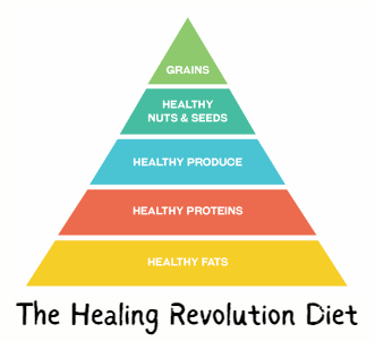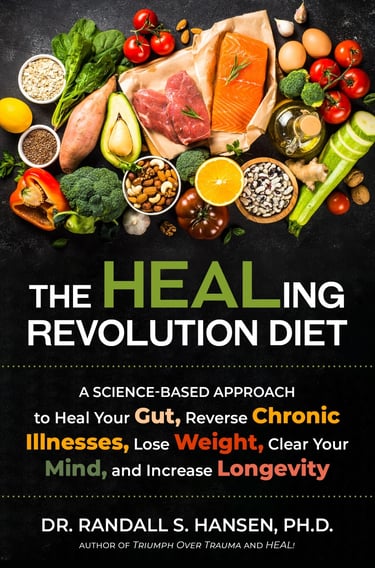Metabolic Health and Metabolic Syndrome
Who hasn’t heard of blood pressure, cholesterol, triglycerides, blood glucose, and body fat?
We have been told for years to monitor certain things when going in for a healthcare visit and when getting blood work done.
But have you heard of Metabolic Health – or more importantly – Metabolic Syndrome?
Metabolic Health Explained
Metabolic health is one of the best ways to determine how well your body is functioning.
Metabolic health deals with how well your metabolism is working; metabolism is your internal process that converts food into energy the body can use. Please remember that you can look healthy on the outside, but unfortunately NOT be healthy on the inside because of metabolic health issues.
Metabolic health has become the canary in the coal mine; that is, when we have multiple markers showing poor metabolic health, it is a precursor to a host of chronic physical illnesses, including diabetes, non-alcoholic fatty liver disease, cancers, dementia and Alzheimer’s disease (now being called type 3 diabetes), cardiovascular diseases like heart attack and stroke, and chronic kidney disease. It has also been shown to be connected to a host of mental illnesses, including depression, anxiety, neurocognitive disorders, and attention deficiency.
According to the latest research, about 90 percent of Americans have metabolic health issues, which can lead to metabolic syndrome and a host of serious chronic health illnesses, such as heart disease, diabetes, cancer, neurodegenerative disorders, and stroke.




Metabolic Health Background
Ever since the 1980s when the U.S. government and other health agencies got involved in making and promoting food and nutrition, the health of the population has never been worse. We are metabolically sick, poisoning our good gut bacteria (microbiome), while weakening and damaging our mitochondria (the energy source for all our cells).
Also in the 1980s, Gerald Reaven of Stanford University School of Medicine observed that several disorders were associated with obesity. He called it Syndrome X, which he later determined was insulin resistance. He stated that insulin resistance was not only a fundamental defect increasing the risk of type 2 diabetes, but he also proposed that it was a prevalent cause of cardiovascular disease, which broke the previous idea that saturated fats and dietary cholesterol were the causes of cardiovascular disease.
The way doctors and scientists measure metabolic health is by using these five elements:
1. Blood pressure. Hypertension, or high blood pressure (130/85 or higher), which affects about half the U.S. population, is a negative sign of metabolic health. You can easily measure this for yourself, but do follow the guidelines of sitting with both feet on the floor and the cuff on your resting left arm.
2. Waistline. Health experts used to talk about weight and body mass index (BMI), but more recently researchers have found that measuring the waist is better. Having a waistline above 40 inches for men and 35 inches for women is a negative sign of metabolic health; this is another easy thing to measure for yourself.
3. Fasting glucose. Indicates how much sugar is in the blood after a period of no eating and only water consumption. Levels under 100 mg/dL are considered healthy; 100-125 mg/dL is considered prediabetic, and anything over 100 is considered a negative sign of metabolic health. This can easily be measured with a blood test – either with an at-home kit or a blood draw by a health professional.
4. Triglycerides. These are fats found in your blood, and play an important role in healthy body functions – until they become too concentrated. Triglycerides have been misunderstood for many years, in terms of the role they do or do not play in cardiovascular disease, but in terms of metabolic health, anything about 150 mg/dL and higher is considered unhealthy. This level can only be measured with a blood panel done by a health professional.
5. HDL Cholesterol. Please note that much of what we once thought we knew about cholesterol has now evolved, including the role that dietary cholesterol plays in levels of cholesterol in the body. Also note that this is HDL, the supposedly “good” cholesterol. In the case with HDL, low numbers are the concern, so a result of 40 mg/dL or less is considered unhealthy.
Metabolic Syndrome is when someone has negative markers for at least three of the five elements… and studies show that somewhere between a quarter and a third of the population has Metabolic Syndrome.
Furthermore, in one study at Johns Hopkins, the researchers concluded that people with Metabolic Syndrome have double the risk of congestive heart failure. Another study found that Metabolic Syndrome was associated with a significantly increased risk of sudden cardiac death – irrespective of gender or race.
Finally, another study published in the journal Cancer found that people who had Metabolic Syndrome had an increased likelihood of numerous cancer types.
Supporting Metabolic Health
According to Dr. Russell L. Blaylock, in his book The Liver Cure: “… sugar is not only a major cause of obesity, but also Metabolic Syndrome, neurodegenerative diseases, reactive hypoglycemia, and contributes to all inflammatory diseases.”
Thus, the best way to support metabolic health is to avoid foods that spike blood glucose, such as foods high in sugar and simple carbohydrates, which include almost all ultra-processed and fast foods and beverages. Focus on home-cooked, low-carb meals, made with quality ingredients.
Beside improving your diet with real foods, which is essential, other ways to support metabolic health include:
getting good quality sleep,
reducing stress levels,
partaking in regular movement/exercise,
limiting alcohol and tobacco smoking,
avoiding environmental toxins (especially those chemicals that disrupt the endocrine/hormone system, such as BPA, Phthalates PFCs, and organophosphate pesticides and herbicides, and chlorine).
The best news is that Metabolic Health can be maintained – and Metabolic Syndrome reversed – with the proper mix of diet and lifestyle habits.
Metabolic Health Resources
Articles:
Think You’re Metabolically Healthy? Only 12% of Americans Fit the Bill
Metabolic Syndrome is on the Rise: What it is and Why it Matters
Worsening Metabolic Syndrome Associated With Developing a Variety of Cancers
Books:
The Healing Revolution Diet: A Science-based Approach to Heal Your Gut, Reverse Chronic Illnesses, Lose Weight, Clear Your Mind, and Increase Longevity
Why We Get Sick: The Hidden Epidemic at the Root of Most Chronic Disease―and How to Fight It
Metabolical: The Lure and the Lies of Processed Food, Nutrition, and Modern Medicine
The Obesity Code: Unlocking the Secrets of Weight Loss
Good Energy: The Surprising Connection Between Metabolism and Limitless Health
Grain Brain: The Surprising Truth about Wheat, Carbs, and Sugar--Your Brain's Silent Killers
Keto Metabolic Breakthrough: A Radical Approach to Reversing Metabolic Dysfunction, Optimizing Nutrient Timing, and Balancing Hormones for Success
The Liver Cure: Natural Solutions for Liver Health to Target Symptoms of Fatty Liver Disease, Autoimmune Diseases, Diabetes, Inflammation, Stress & Fatigue, Skin Conditions, and Many More
Next-Level Metabolism: The Art and Science of Metabolic Mastery



